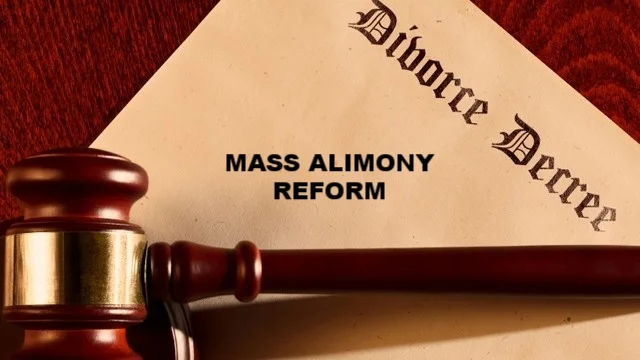Key Takeaways
- The state’s Alimony Reform Act defines cohabitation as “a shared household for at least 3 months, focusing on economic and residential factors”.
- Proving cohabitation usually requires giving the court multiple forms of evidence (think financial records, statements, and surveillance).
- Courts can suspend, reduce, or terminate alimony depending on the level of interdependence and the recipient’s needs.
- Tax rules, reinstatement, and modification rules all differ depending on the timing and nature of cohabitation.
- The right legal strategy is important to avoid downsides, especially in high-conflict or borderline cases.
Alimony is awarded based on a spouse’s ability (or inability) to support themselves financially, as well as the difference between the two spouses’ financial situations after a divorce.
It’s generally assumed that the spouse receiving alimony will need the financial help to make ends meet. But what happens if they move in with someone after the divorce? This is called cohabitation, and it can have serious ramifications where alimony is concerned.
Cohabitation under Massachusetts alimony law means maintaining a common household with another person for at least three continuous months.
If that can be proven, it can mean the suspension, reduction, or termination of general term alimony.
Under the Alimony Reform Act of 2011, codified in Massachusetts General Laws Chapter 208 Section 49(d), courts require evidence of a shared primary residence or economic interdependence.
Something that surprises many people is that this definition doesn’t only apply to romantic relationships. Even family or platonic situations can trigger a review if they meet the common household standard. Between 10% and 20% of modification requests involve non-romantic setups. That said, the court does examine intent.
Misunderstanding what qualifies as cohabitation could have a major impact on your case. It’s worth reviewing your specific situation with an experienced attorney to make sure the facts meet legal standards.
Explore your spousal support options in Worcester.

What Factors Determine a Common Household in Cohabitation Cases?
Shared residence, joint financial obligations, and statements of mutual support determine a common household in Massachusetts cohabitation cases.
Courts need to see shared expenses (20 to 40%), oral or written statements confirming the relationship, and evidence of joint responsibilities, like housekeeping or childcare. In 30 to 50% of cases, courts gauge mixed indicators and use a “totality-of-circumstances” approach. So, if you’re trying to prove or disprove cohabitation, documentation is of central importance.
Does Sharing Expenses Qualify as Economic Interdependence?
Yes, sharing expenses often indicates economic interdependence, especially when joint accounts or shared bills cover 40 to 60% of monthly costs.
Not clear on what that might mean? Examples include splitting groceries, utilities, or rent. However, if shared costs fall under 10%, the court may not find economic interdependence. A full financial analysis helps you see if the threshold is met.

How Do Courts View Joint Responsibilities Beyond Finances?
Courts consider non-financial joint responsibilities like sharing household chores, parenting duties, or caregiving as signs of cohabitation.
Household responsibilities are often divided 50/50. You can attest to that with affidavits from friends, neighbors, or relatives. About 15 to 25% of disputes include these kinds of affidavits. Vague/unsupported claims make your case weaker, so make sure you have specific evidence that shows the split responsibilities.
How Can You Prove Cohabitation to Suspend Alimony?
To prove cohabitation, you need consistent, documented evidence of shared living for three or more months.
Evidence can include:
- Utility bills
- Leases
- Mailing addresses/address changes
- Witness testimony
- Social media activity
If you can’t prove cohabitation on your own, you can enlist help. Private investigators are used in 20 to 30% of contested cases to track routines and gather proof over 4 to 6 months.
Learn more about alimony modification processes in Massachusetts.
What Role Do Public Records Play in Proof?
Public records help prove residence and shared address.
Evidence like leases, voter registrations, and mail forwarding documents all help support the claim of cohabitation. In 70 to 80% of cases, you can access these through local clerks or housing authorities. Delivery records from stores like Walmart+ or Amazon, or utility transfers also help prove a shared address.
How Effective Is Social Media Evidence?
Social media evidence can support cohabitation claims, especially posts showing vacations, shared holidays, or events at the same home.
Timestamped screenshots play a role in 10 to 20% of cases. However, private posts aren’t as reliable, and the court may not admit them.

What Outcomes Can Courts Order Upon Proving Cohabitation?
If you can prove cohabitation, the court can suspend, reduce, or terminate alimony.
- Suspension is the most common outcome (40 to 60% of cases, especially in long-term marriages).
- Reduction (usually by 30 to 50%) can happen if the recipient is partially supported by the new household (but not entirely).
- Full termination is less common and depends on the recipient’s long-term stability.
Understand that judges have wide discretion here, so prepare for any outcome.
See how post-divorce adjustments work in Massachusetts.
When Might Courts Choose Reduction Over Suspension?
The court may reduce alimony rather than suspend it when there’s only a little financial interdependence (20 to 30% shared costs) or cohabitation is short-lived.
The recipient’s ongoing needs and lifestyle changes count for a lot. Evidence showing partial support generally leads to a comparative reduction rather than a full stop.
How Does Cohabitation Suspension Affect Taxes?
Suspended alimony payments aren’t deductible by the payer or taxable to the recipient under post-2018 federal tax law.
If payments resume within 1 to 3 years, IRS recapture rules may come into play, but this varies from case to case. State tax systems generally follow federal rules. That said, back payments from a suspension period can trigger a 5 to 15% tax difference if you don’t report things the right way. Work with a tax expert to stay compliant.
Understand tax considerations in Massachusetts support cases.

What Happens If Cohabitation Ends After Suspension?
If cohabitation ends, you can request reinstatement of alimony, but it’s not automatic.
You’ll need to file a motion within 1 to 3 months and give the court proof, like a new lease, utility bills, or other address records. Courts only grant reinstatement in 15 to 25% of cases if there’s still a financial need, so this isn’t a sure thing. Additionally, any delays on your end may forfeit your right, so act quickly.
What Evidence Supports Reinstatement Requests?
To support reinstatement, you’ll need to submit updated financial records, affidavits detailing the end of the relationship, and proof of separate living.
Hearings may be required, and they’ll look a lot like initial alimony modifications. Make sure you have access to experienced legal guidance here.
What Challenges Arise in Cohabitation-Based Modifications?
Common challenges with cohabitation-based modifications include false addresses (10 to 20% of cases), unreliable witnesses, and incomplete records.
Cohabitation-related alimony changes are often disputed. Legal fees and investigator costs range from $3,000 to $8,000. Disputes may stretch out for 4 to 12 months, so be prepared for that.
You have a better chance of avoiding two big issues, weak claims and inadmissible evidence, if you work with an experienced attorney.
Learn more about avoiding post-divorce pitfalls in Massachusetts.
How Do Pre-2012 Divorces Differ in Cohabitation Rules?
If your divorce was finalized before the 2011 Alimony Reform Act, cohabitation doesn’t automatically trigger modification.
Instead, you have to show a material change in your circumstances. Courts have rejected retroactive applications of the law, but 20 to 30% of older cases do move forward under standard modification rules.
Explore contested support hearings in Massachusetts.
Frequently Asked Questions
Can cohabitation with a family member suspend alimony in Massachusetts?
Yes, if the cohabitation creates economic interdependence, or there are shared living conditions that meet the state’s requirements.
What if the recipient uses a separate address to hide cohabitation?
Courts can look at indirect indications like utility usage or delivery records to challenge false claims of separate residence.
Does cohabitation affect alimony differently in short vs. long marriages?
Yes. Courts are more likely to reduce or suspend alimony in short-term marriages, while long-term cases usually see gradual changes.
How long after suspension can alimony be reinstated?
You should file for reinstatement within 1 to 3 months of cohabitation ending and provide clear proof of financial need and separation.
Is private investigator evidence admissible for cohabitation proof?
Yes, if it’s collected legally. PIs are used in 20 to 30% of cases and often submit detailed reports and photographs.

Michelle Murray has devoted her practice exclusively to family law matters, focusing her efforts on assisting clients through divorce, custody, property division, child support, spousal support, and visitation issues throughout Worcester County.
